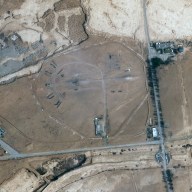In a recent sexual assault case, the judge ruled that a woman complainant must show her face, even though she argued it was her religious right to wear the full face covering (the niqab).
The judge’s decision was based on the fact she showed her face for her driver’s licence, so her face can be seen by anyone who needs proof of her identity. The judge also said showing her face is necessary so the accused and their lawyers can assess her demeanour, with all the cues provided by facial and verbal expressions.
The judge’s decision is being appealed to the Ontario Supreme Court. The Ontario Human Rights Commission has asked for intervener status at the court so it can explain religious rights.
This seemingly simple issue raises major issues about religious rights: The right of the accused, diverse interpretation of religious injunctions and religious/cultural accommodation.
Face covering is demanded by some extreme conservative Muslims, and the Toronto woman is choosing this conservative interpretation for herself, although this is not required in Islam.
The difficulty for someone like me is that I must respect the woman’s choice and I cannot tell the woman she must show her face, and for all I know this particular woman is fully integrated into Canadian society.
However, this conundrum goes beyond the courtroom.
There are some Muslims who are increasing the number of identity markers, for example the niqab, to create a distinct identity, which is leading to self- segregation.
Before I am lambasted, I acknowledge that I am generalizing when I say wearing the niqab creates a separation between a woman and all others — and may, in many instances, restrict full participation in Canadian society.
Surely we Muslims should be active participants because we cannot fight racism and discrimination nor demand changes if we are not involved as full citizens.
I don’t envy the Ontario Supreme Court judge who has to make this Solomon-like decision regarding the conflict between rights.
I am sure the judge will consider the resolution of such cases may strengthen the more conservative elements within the Muslim communities and set precedents for the legal system.
















